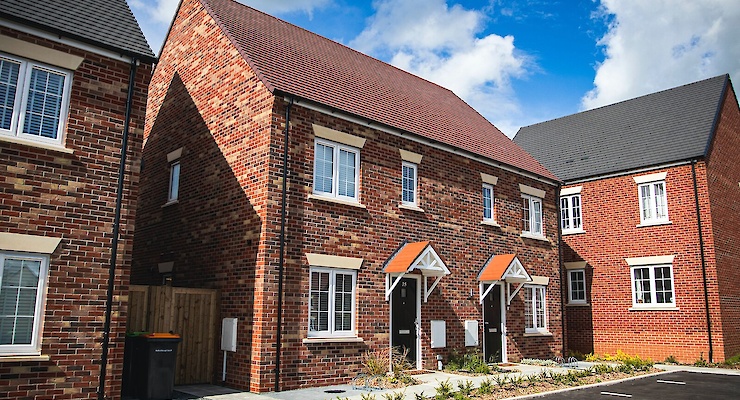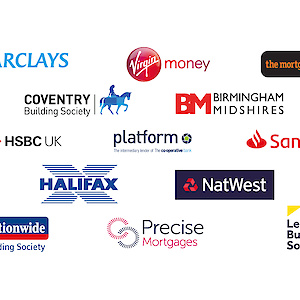


Head of Content

Mortgage Advisor & Director

UK mortgage lenders class repossessions as one of the most severe forms of bad credit an applicant can have, which means it can often be difficult to secure finance from them if you have one in your credit history.
The good news, however, is that you might have options, even if your house repossession was in the last couple of years. In this comprehensive guide, you will learn how to get a mortgage with this type of bad credit, what criteria you will need to meet, and how a specialist broker can help you get approved.
Can you get a mortgage after a repossession?
Yes. It can be harder to get approved for a mortgage with a repossession in your credit history, but it is possible. While your choice of lenders will be limited due to the severity of this credit issue, there are mortgage providers with a higher appetite for risk who might be able to help.
Lenders whose criteria is flexible enough to extend to borrowers with previous repossessions against their name will look closely at the circumstances surrounding the issue and take them on board when deciding whether to approve the applicant for finance.
The mortgage provider will assess the following factors:
- When the repossession occurred
- How much debt you originally defaulted on
- Your financial conduct since it occurred
See the eligibility criteria section below for further information about how these variables affect your chances of securing a mortgage as well as the other factors the lender will review.
What criteria will you need to meet
Mortgage lenders assess post-repossession applicants based on the following criteria:
How long ago the repossession occurred
Your chances of being approved for a mortgage are virtually non-existent if the repossession was within the last year. Beyond this time period, the longer ago the issue occurred, the stronger your chances of getting approved for a mortgage. Minimum deposit requirements and interest rates are more likely to be lower if the repossession was more recent.
How much debt was involved
Expect the lender to review how much your repossession debt amounted to - this also includes whether there was any outstanding after the property was sold to recoup the amount you defaulted on. There’s no cut-off point for the debt amount that will trigger a mortgage rejection, but bear in mind that some lenders have a higher appetite for risk than others.
Why your home was repossessed
Extenuating circumstances could be taken into account here as mortgage lenders might be more lenient if the issue occurred because of an unexpected life event such as a job loss. If it was the result of general financial carelessness, however, your options could be restricted.
Whether you have other credit issues
Mortgage lenders like to see evidence of responsible financial conduct in the years following a repossession, and it will certainly help your cause if there are no other types of bad credit showing up against your name. There are, however, specialist lenders available for borrowers with multiple credit problems and they tend to focus on the overall strength of applications.
How much deposit you have
Borrowers with repossessions in their credit history are usually asked for a higher deposit than people with clean credit. If the issue occurred in the last 1-2 years, deposit requirements can be as high as 30-40%, but the minimum amount needed should begin to normalise the closer you get to that six-year mark, when the repossession will disappear from your credit files.
The table below reveals how much deposit you are likely to need based on the age of the repossession, and how likely you are to be approved based on this.
|
Repossession Date |
Minimum Deposit Requirements |
Approximate Amount of Approachable Lenders |
|
Less than 1 year ago |
N/A |
Virtually zero |
|
1-2 years ago |
35-40% |
Very few will consider |
|
2-3 years ago |
30-35% |
Few will consider |
|
3-4 years ago |
15-20% |
Some will consider |
|
4-5 years ago |
10% |
Most will consider |
|
5-6 years ago |
10% or less |
Most will consider |
The above information was accurate at the time of writing but criteria can change at any time. Speak to a mortgage broker for the latest requirements
Other factors
In addition to your credit situation and deposit amount, mortgage lenders will also need you to meet their general eligibility criteria, which includes other requirements such as:
- Age restrictions: Specialist advice might be needed if you will be aged between 75 and 85 during the mortgage term, as some lenders have age caps in place.
- Property type: If the property you’re buying includes unusual features or non-standard construction (anything that isn’t bricks and mortar), you may need a specialist lender.
- Employment type: If you are self-employed or earn a portion of your income through non-standard sources like commission or royalties, this can be an added complication on top of your bad credit. Speak to a broker to find out what your options are.
The criteria above was sourced from Criteria Brain and Knowledge Bank.
How to get a mortgage after a repossession

We recommend taking the following steps to help you get started with your application:
Review your credit reports: You can access a trial through our affiliate partners and download your credit reports for free. After doing this, be sure to thoroughly review them and report any inaccuracies or outdated information, as having errors removed can strengthen your position and offset some of the risk posed by your repossession.
Speak to a mortgage broker: We work with mortgage brokers who specialise in bad credit and they help people find finance after repossessions every day. Their knowledge, experience and lender contacts can make all of the difference with your application.
Secure an agreement in principle: Your Teito mortgage broker will walk you through this step. An agreement in principle will give you an idea of how much you could potentially borrow and on what terms. We could secure one for you online in minutes.
Ready to get started with a bad credit mortgage specialist? Make an enquiry online to arrange a free, no-obligation chat with a Teito mortgage broker today.
Will your maximum borrowing be impacted?
Having a repossession against your name won’t necessarily mean your maximum mortgage borrowing is lower than someone with clean credit. Most lenders will still consider offering you finance based on the standard 4.5 times annual salary, and some may go higher than this.
While other lenders stretch to 5 times salary or higher, these larger income multiples might be more difficult to access since fewer mortgage deals will be available to you.
Having a shortfall and outstanding debt from your repossession might also reduce your maximum borrowing, since affordability is calculated based on income and outgoings.
You can use our calculator below to get a rough idea of the amount you can borrow:
Available mortgage lenders
Some mortgage providers, such as HSBC and Santander, will reject your application outright if you have ever had a property repossessed. Other lenders, both specialist and high street, take a more flexible stance to applicants with this form of adverse credit, and may consider you.
Below you will find examples of lenders who offer finance to people after a repossession as well as some of the specific criteria you might encounter from them:
- Kensington: Will consider offering a mortgage as long as the repossession occurred more than three years ago.
- Nationwide: Will consider applications on a case-by-case basis but usually require borrowers to have a low loan-to-value (LTV) ratio and good credit score.
- Halifax: Considers post-repossession applicants but uses internal credit scoring when making their final lending decision.
What interest rate to expect
Interest rates are usually less favourable for borrowers with credit problems, such as a repossession, and can reach anywhere between half a percentage point and two full percentage points higher than for mortgage applicants with clean credit. Keep in mind that a mortgage broker might be able to help you secure a competitive rate, especially if your repossession occurred long ago and you have a healthy amount of deposit.
You can get a free rates comparison of the entire market from one of our mortgage advisers below:

Secure your ideal mortgage today
Why choose Teito for your mortgage needs?
There are mortgage brokers at Teito who specialise in bad credit, and they have the knowledge and experience to help you secure a favourable deal despite your repossession.
They have access to the entire market, including specialist lenders and exclusive broker-only deals, but that’s not the only reason to choose us. Here are some of the other benefits:
- You can get a free rates comparison of the whole market
- Our advisors are 5-star rated on leading review sites
- We could help you secure an agreement in principle in minutes
- We have a strong track record with post-repossession customers
Ready to get started? Make an enquiry online to kick things off with a free, no-obligation chat about your mortgage requirements today.
FAQs
They can offer you impartial advice about your situation, and there could be options they can explore with you, such as taking out a secured loan or releasing equity to pay off the debt. A mortgage broker can also make you aware of the support that is available, including Citizens Advice and StepChange, and may advise you to contact one of these organisations first.
Choosing an Adviser
Selecting a qualified and experienced mortgage adviser is of great importance. To choose a suitable adviser, evaluate their qualifications, experience, and reputation, and ensure they are regulated by the Financial Conduct Authority (FCA).
Read reviews from previous clients and make sure they provide a clear explanation of the products and services they offer, as well as the fees and charges associated with them.

























































































































































